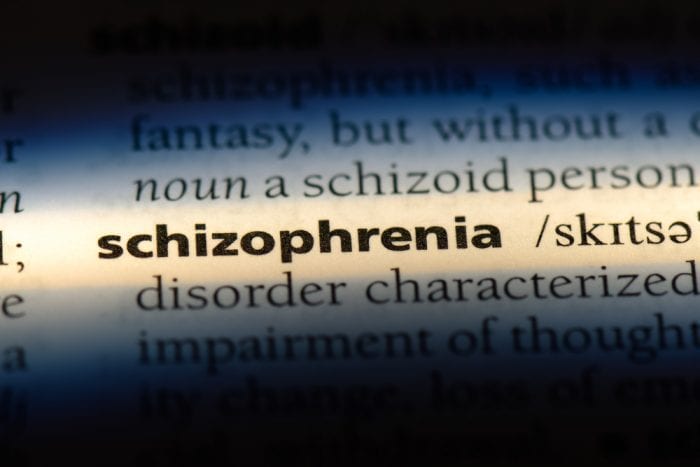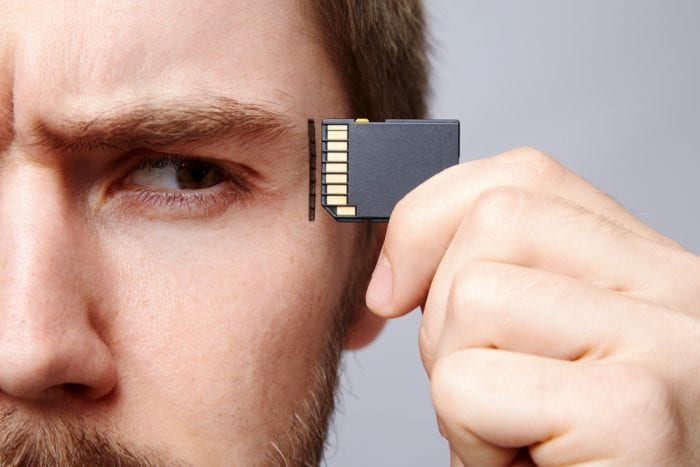Double-blind, randomized, phase 2 clinical trial finds CBD to be a very effective antipsychotic.
It’s the 21st Century, and there are still many lingering misconceptions about cannabis. One of the biggest misconceptions is the link between cannabis and schizophrenia. In fact, even decades after Reefer Madness, this remains one of the most common anti-legalization arguments. What is becoming clear as more cannabis-based study gets underway, is the possibility that cannabis may eventually become a treatment for (not a trigger of) schizophrenia.
Originally, experts did feel that there was a real link between cannabis use and the development of schizophrenia, but today, research has moved well beyond this basic assumption.

Debunking the Myth – Cannabis Does Not Cause Schizophrenia
Despite the decades of research into cannabis use and schizophrenia, the literature doesn’t support a direct link. In other words, smoking weed doesn’t cause this mental illness – there is no known causation between the two.
There are connections worth considering though, and this is perhaps where some of the confusion comes into play. Up to 42 percent [1]Fischer, A. S., Whitfield-Gabrieli, S., Roth, R. M., Brunette, M. F., & Green, A. I. (2014). Impaired functional connectivity of brain reward circuitry in patients with schizophrenia and cannabis … Continue reading of people with schizophrenia are also diagnosed with a cannabis use disorder. If you know someone with schizophrenia, there is a substantial chance they also have a long history with cannabis. But causation and correlation are not the same. Researchers now believe that the same neurological dysfunction causes both schizophrenia and cannabis use disorder.
On Cannabis Consumption and Schizophrenia
On top of cannabis use disorder and schizophrenia often coexisting, two different studies have questioned whether or not cannabis use may actually help people with schizophrenia cope with their disease. One study, exploring cannabis use on the brain reward circuit of participants, found that THC was well tolerated, and seemed to re-balance the reward circuit. Moreover, another study found that cannabis use improved memory, cognition, verbal fluency, and other performance-based measures in a group of participants with schizophrenia.
If anything is clear in the cannabis-schizophrenia relationship – it’s the need for more research. Increasingly, researchers believe that cannabis use may be a possible new alternative antipsychotic treatment.

High Potency CBD Antipsychotic Treatment
CBD also has a well-reported ability to reduce the length and strength of a THC-high. By indirectly working through the endocannabinoid system, it unlocks the THC molecule from the CB1 receptor in the brain. Without this direct connection, THC is unable to trigger psychoactivity.
Based on this knowledge, researchers are working on ways to use CBD for psychosis, schizophrenia, and other psychotic disorders. One of the most exciting papers, “Cannabidiol enhances anandamide signaling and alleviates psychotic symptoms of schizophrenia” [2]Leweke, F. M., Piomelli, D., Pahlisch, F., Muhl, D., Gerth, C. W., Hoyer, C., Klosterkötter, J., Hellmich, M., & Koethe, D. (2012). Cannabidiol enhances anandamide signaling and alleviates … Continue reading published in Translational Psychiatry, concluded CBD could represent “a completely new mechanism in the treatment of schizophrenia.”
The Study on Psychosis and Schizophrenia
The Phase II study was randomized, controlled, and double-blind. Forty two “acutely exacerbated schizophrenic patients” were randomly assigned to a three-week treatment of CBD or a standard antipsychotic medication (amisulpride). In progressive steps, the patients received up to 800 mg of CBD a day, delivered in four smaller doses.
The researchers discovered both “cannabidiol or amisulpride treatment showed significant clinical improvement.” In the data, there were no significant differences between the two medications. Authors of the study state, “These results suggest that cannabidiol is as effective at improving psychotic symptoms as the standard antipsychotic amisulpride.”

Changing Tides of CBD in Antipsychotic Research
The results in this Phase II clinical trial are remarkable and are much farther ahead in the research process than many other areas of cannabis-based medicine. This study is exciting for the future of schizophrenia treatments, and for cannabis-based research as a whole. The National Institute of Drug Abuse, a federal agency notorious for its anti-cannabis stance, partially funded the study. They allocate a small portion of the budget to ‘positive uses for illicit substances’.
As such, this Phase II trial is a rare anomaly. It’s a good indication that the times are changing in the field of cannabis research.
A Growing Movement Towards CBD as an Antipsychotic
Since this study’s publication in 2012, there is a growing movement in psychiatric sciences to find new approaches to mental illness. The endocannabinoid system is increasingly the new frontier in therapeutic exploration. The many cannabinoids derived from cannabis could play an essential role in the treatment of certain mental illnesses.
Looking at all the current cannabinoids, a CBD antipsychotic holds the most promise. THC has both “positive” and “negative” reactions. Thereby, CBD is unlike it. People generally tolerate CBD exceptionally well. This even when compared to conventional antipsychotic medications. In the near future, American psychiatrists may use high potency CBD antipsychotic in a holistic approach for mental illness.
References






Michael R. Ireland
Interesting.
Absolute Nature CBD
Really good write up.
I read an article just the other day that said data shows that regardless of marijuana consumption the same % of that population will get schizophrenia. So correlation between marijuana and schizophrenia doesn’t match up. I wish I had saved it now.
James Williams
Sources?
Jennifer Grant
Hi James – these are all linked within the article. Look for green text and that will take your directly to these. Some are internal (related) RxLeaf articles and some are external. If you are looking to read a specific study, look for green text that says “study” or “research” and voila! Sources.
Dana Higgins
Ms. Grant, do you know if bipolar disorder was included in the mental conditions that could be treated with this?
Jennifer Grant
Hi Dana – this study was specific to psychosis in schizophrenic patients.